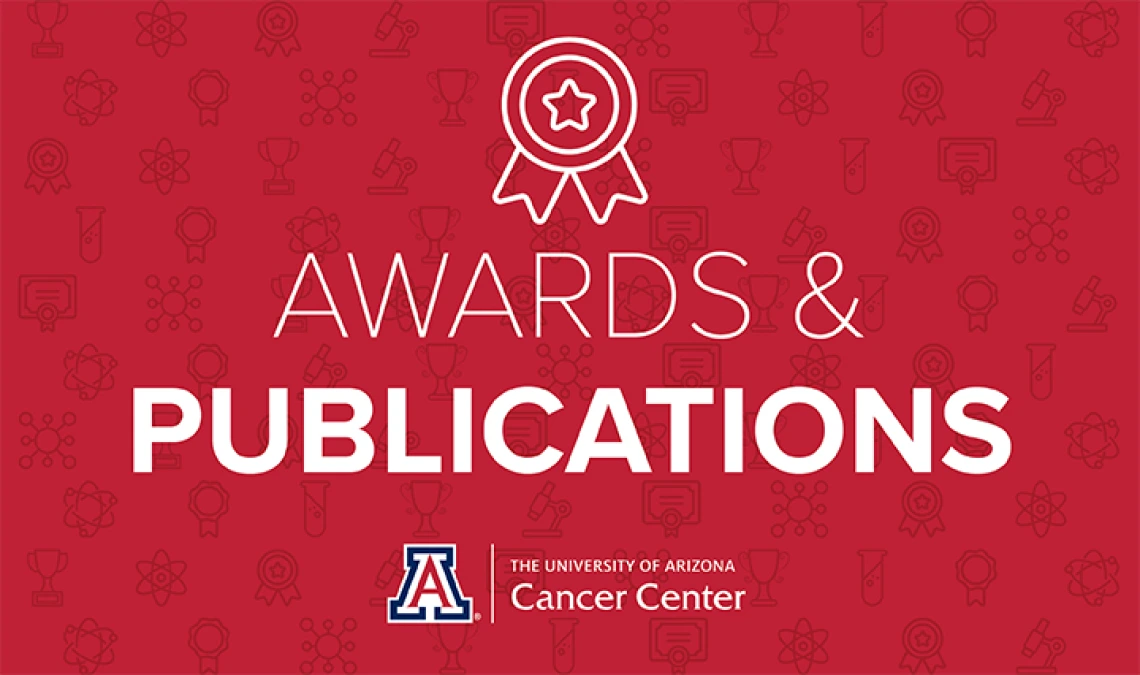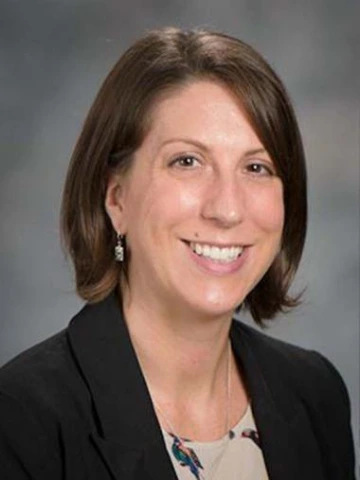UArizona Cancer Center Awards & Publications (March 2021)
Finding Tomorrow’s Treatments, Today

Awards Update: March 2021

Susan M. Schembre, PhD, RD
Susan M. Schembre, PhD, RD
Cancer Prevention and Control Program
Project Title: Mobile ecological momentary diet assessment: a low burden, ecologically-valid approach to measuring dietary intake in near-real time
Grant Number: 1R01CA244404-01A1
Administering Institute: National Cancer Institute (NCI)
Funding: $3.3 million (5 years)
Project Research: Excessive intake of saturated fat and added sugars is known to be a leading cause of premature mortality among adults, contributing to approximately 700,000 deaths each year in the U.S. Dr. Schembre’s project seeks to develop and test a low-cost mobile app to accurately estimate the intake of saturated fat and added sugars in a diverse population. The project will derive a culturally- and demographically representative list of foods and beverages that contribute a majority (>90%) of the saturated fat and added sugars in the American diet using recent National Health and Nutrition Examination Survey (NHANES) data. Traditional approaches to collecting dietary intake information have relied upon food frequency questionnaires or 24-hour dietary recalls. These approaches are time-intensive and taxing for users, and costly for researchers. These methods are also prone to error due, in part, to reliance on a person’s memory over longer intervals. Dr. Schembre’s proposed dietary assessment method aims to address these limitations using an approach called ecological momentary assessment (EMA). EMA often uses mobile phone apps to prompt users to complete brief surveys multiple times a day to capture events as close to when they happen. EMA can, thereby, shorten recall intervals to improve reporting errors and reduce user and researcher burden while maximizing the ecological validity.
Dr. Schembre Says: "Diet plays a major role as an exposure to increase risk of several different types of cancer. Added sugars and saturated fats are both energy-dense components of our diet that contribute to excessive weight gain, and excessive weight gain and obesity are causally linked to cancer. Thus, an app could help us do a number of things to more accurately assess, nearly in real time, who may be overconsuming saturated fats and added sugars. Beyond the basic assessment of intake, there also is real potential for the developed app to be used to promote behavior modification and dietary interventions to reduce the risk of cancer.”

Tracy E. Crane, PhD, RD
Tracy E. Crane, PhD, RD
Shared Resource co-Director, Behavioral Measurement and Interventions
Cancer Prevention and Control Program
Co-Principal Investigators: Steven Bethard, PhD, and Rebecca Sharp, PhD
Project Title: Using natural language processing to determine predictors of healthy diet and physical activity behavior change in ovarian cancer survivors
Grant Number: 1R21CA256680-01
Administering Institute: National Cancer Institute (NCI)
Funding: $382,266 (2 years)
Project Research: Telephone-based lifestyle interventions have demonstrated effectiveness in helping survivors meet cancer preventive guidelines, however these trials are labor intensive and expensive to deliver, limiting their potential for broad dissemination. Dr. Crane’s project seeks to address this hurdle by examining whether artificial intelligence can use speech and audio from health coaching calls to predict who is most likely to enact healthy lifestyle behaviors of diet and physical activity. This project uses previously-collected data from the Lifestyle Intervention for Ovarian Cancer Enhanced Survival (LIVES) Study to 1) Develop a machine-learning model to identify patterns in the interactions between coaches and their participants that signal a likelihood of optimal behavior change of healthy lifestyle and 2) Decompose the machine-learning model in terms of “intervenable factors,” so that participant affect, coach adherence to fidelity protocols, and other important aspects of the interaction can be individually evaluated for their role in predicting healthy lifestyle behavior change and adherence to intervention goals. The LIVES study produced over 30,000 hours of recorded phone calls, which were recorded for fidelity purposes.
Dr. Crane Says: “My involvement with the Data Science Institute got me thinking about how we can utilize the extensive data from the LIVES telephone conversations. There is a lot that goes into the decision of whether a person buys a bag of carrots instead of a bag of potato chips beyond the simple recommendation to eat healthy. We thought maybe in these telephone calls we could find some of the predictors as to why some people make healthy changes and others do not, beyond the typical measures such as voice, pitch or tone. At the end of the day, we hope to optimize these lifestyle interventions with these machine learned algorithims to offer personalized interventions that maximize change.”





